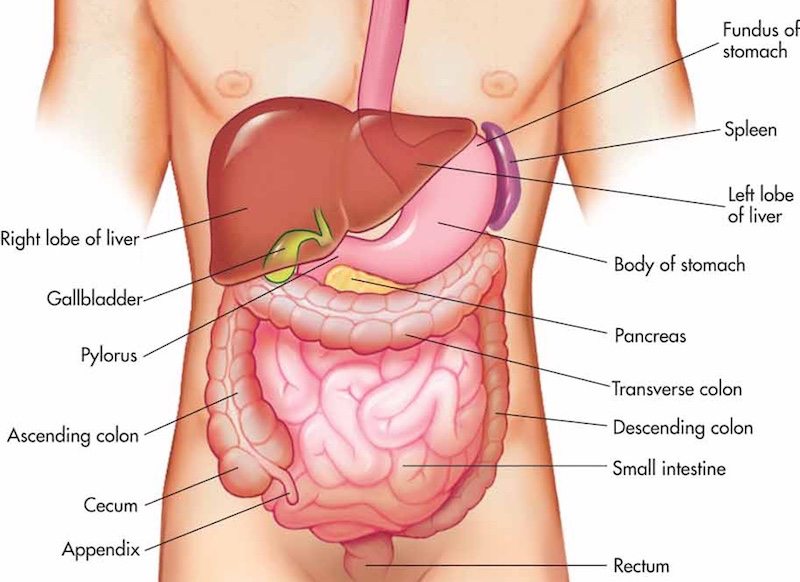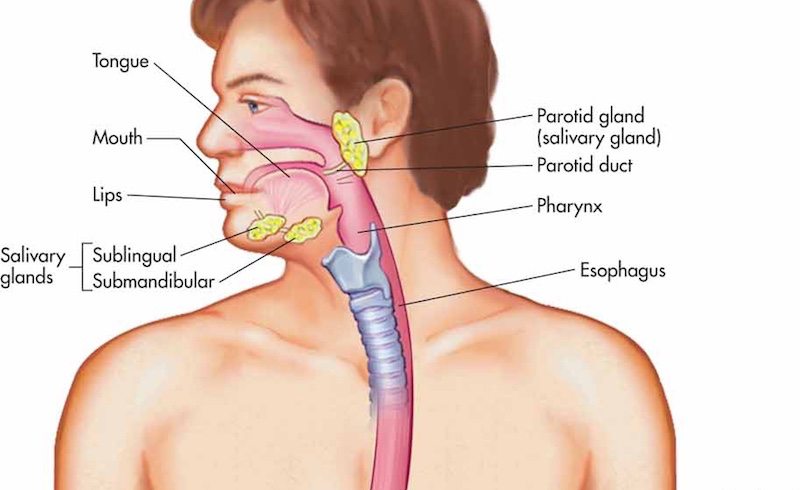Digestive system
Episode #4 of the course “How the human body works”
The digestive system is necessary and important for human life. Beginning at the mouth and ending at the colon, the digestive system is a series of organs that humans use to take in and absorb nutrients through food, then remove waste from the body. Most food takes approximately 24 hours to be processed entirely through an adult’s digestive system, although certain ingredients can dramatically alter that time frame and make it longer or shorter.
The digestive system is comprised of the mouth, throat, stomach, intestine, and colon, although other internal organs are contributors. Each organ in the system has a responsibility, but they are all designed to remove nutrients from food and deliver them to the body’s organs and muscles efficiently while simultaneously flushing bodily waste. The teeth and tongue make it easy for the throat to deliver food to the stomach, where high levels of hydrochloric acid break food down. The stomach is a pouch-like organ with a valve at the bottom that delivers liquefied food to the intestinal tube.

In the intestine, sometimes called the “small intestine,” liquefied food goes through a process of having nutrients removed and sent through the bloodstream to the body. In return, the bloodstream delivers waste by-products from the organs to the liquid in the intestines. An average adult’s intestines are over 20 feet long; this is where food spends the most time inside the human body.
The intestine is connected to the colon, sometimes called “the large intestine”—a larger, tube-like organ that is only about 5 feet long. In the colon, water is extracted from the food byproducts, which are now mostly waste and ready to be expelled from the body. People with healthy digestive systems typically expel waste in a bowel movement once or twice per day, but medical conditions or diet can alter that substantially.
Share with friends

